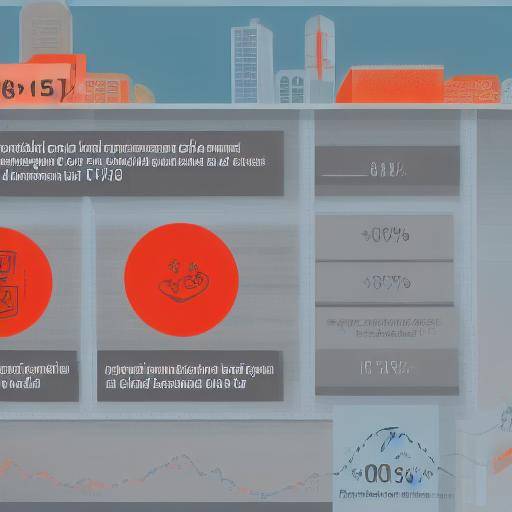
Private pension schemes have become a popular option for those who want to secure their financial future. However, considering this alternative, it is important to understand both its advantages and disadvantages. In this article, we will thoroughly explore the benefits, risks and evaluation of private pension plans to provide you with a full understanding of this investment option.
Benefits of private pension schemes
Private pension schemes offer a wide range of benefits that make them attractive to those who want to ensure their retirement. Some of the key benefits include:
1. Long-term financial security
Private pension schemes provide a stable source of income during retirement, allowing individuals to maintain their quality of life without relying solely on social security or other forms of limited income.
2. Fiscal advantages
Many countries offer tax incentives to those who contribute to private pension schemes. These incentives may include tax deductions or special tax benefits, which may result in significant savings for taxpayers.
3. Investment diversification
Private pension schemes offer the possibility of diversifying investments, which can help mitigate risk and maximize long-term performance.
4. Flexibility and control
Individuals have the ability to choose how their contributions are invested, which gives them greater control over their future financial security.
5. Inheritance
In many cases, private pension schemes offer the possibility of leaving a financial legacy to relatives or loved ones.
Risks associated with private pension schemes
Despite benefits, private pension schemes also entail certain risks that should be taken into account when considering this investment option. Some of the risks include:
1. Investment performance
The performance of private pension schemes is subject to market fluctuations, which may result in capital losses if investments do not have the expected return.
2. Costs and commissions
Private pension schemes may be associated with considerable costs and commissions, which can significantly reduce net investment performance over time.
3. Rigidity and restrictions
Some private pension schemes may be subject to restrictions and penalties in case of early retirements or changes in investment conditions.
4. Longevity
Longevity is a factor to consider, as while private pension plans seek to provide financial security during retirement, individuals must ensure that their funds last long enough to meet their financial needs throughout their lives.
Evaluation of private pension schemes
In assessing the suitability of private pension schemes, it is crucial to consider a number of key aspects:
1. Personal risk profile
Each individual has a unique financial risk profile, and it is crucial to assess whether private pension plans are aligned with that profile.
2. Long-term financial goals
It is essential to consider whether private pension schemes meet the long-term financial objectives of the individual, including retirement planning and inheritance management.
3. Costs and benefits
Assessing the costs associated with private pension schemes and comparing them to potential benefits is critical to making an informed decision.
4. Flexibility and liquidity
The evaluation of the flexibility and liquidity of private pension schemes is crucial, especially in unforeseen situations that require access to funds.
5. Financial advice
Finding professional financial advice can provide clarity and perspective in assessing private pension plans and determining whether they are suitable for a specific financial situation.
Conclusion
In short, private pension schemes offer a number of benefits, such as long-term financial security, fiscal advantages, investment diversification, flexibility and control, and the possibility of leaving a financial legacy. However, they also carry risks, such as investment performance, costs and commissions, restrictions and penalties, and the longevity of funds. In assessing private pension plans, it is crucial to consider the personal risk profile, long-term financial objectives, costs and benefits, flexibility and liquidity, and seek financial advice.
Ultimately, the decision to invest in a private pension scheme should be based on a thorough evaluation and a clear understanding of the benefits and risks involved. This investment option can be a powerful tool for long-term financial planning, but requires a strategic and reflective approach.
FAQs
1. What are the tax advantages of private pension schemes?
Private pension schemes often offer tax incentives, such as tax deductions for contributions made. These benefits can help reduce tax burdens and increase long-term savings.
2. What are some common risks associated with private pension plans?
Some common risks include market volatility that affects investment performance, costs and commissions associated with plan management, as well as restrictions and penalties for early retirements.
3. Do private pension plans offer flexibility in terms of investment options?
Yes, most private pension schemes offer flexibility in the choice of investment options, allowing account holders to diversify their portfolio of investments according to their preferences and risk tolerance.
4. Should I seek financial advice before investing in a private pension plan?
Yes, it is advisable to seek professional financial advice to assess the suitability of private pension schemes based on their specific financial situation, long-term objectives and risk profile.
5. What is the optimal age to start investing in a private pension plan?
The optimal age to start investing in a private pension scheme varies according to individual circumstances, but generally, as soon as it begins, more time will have the funds to grow and accumulate yields.
6. Can I change the investment options in my private pension plan over time?
Yes, many private pension plans offer the flexibility to change investment options over time to adapt to changes in financial circumstances or investment strategies.
With a clear understanding of the benefits, risks and key considerations in assessing private pension plans, individuals can make informed financial decisions that support their long-term financial security.






















































